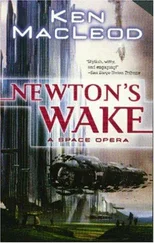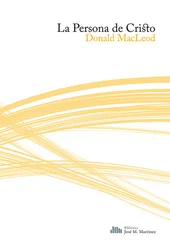Head in her hands, by this point. She sniffed hard. She heard a drawer open and close. Some light weight was scuffed across the desk.
‘Tissues,’ Ahmed said.
‘Thanks.’ She blew. ‘Ugh.’
Steadier now, she took a sip of coffee. ‘Like I said, I’m sorry, Ahmed.’
‘You have nothing to apologise for,’ he said. ‘Anybody would do the same. It’s expected.’
‘I brought your name into—’
Ahmed waved a hand. ‘Don’t worry about me,’ he said. ‘Not for a second. They can’t touch me on any of that nonsense.’
‘You’ve written an article about the Naxals,’ Geena said, as if he needed reminding. ‘A few years ago now, but…’
‘Ah, yes,’ said Ahmed, with a fleeting smile. ‘“The Pure Theory of Primitive Military Accumulation”. You’ve read it?’
‘Yes, and… it could be interpreted as sympathetic, or at least – what do the cops call it?’ She struggled to remember the phrase thrown in her face the previous night. ‘“Soft support”.’
‘Ah, fuck.’ Ahmed exhaled the word on a long breath. ‘Pardon my English, Geena.’ He glanced over his shoulder, as if at the recording device that wasn’t running. ‘I trust that will be interpreted as an expletive and an intensifier. It’s just that I’m a little taken aback that you might think that they might think that way.’
He touched his steepled, spread fingers to his mouth and nose, repeating this several times, his gaze abstract. Then he smiled, disarmingly.
‘It’s like… you missed the memo. Missed a class, or something.’ Again with the smile. ‘I mean, don’t take this personally, it’s not a criticism of you, if anyone’s failed it’s me or one of my colleagues. Think methodology, Geena.’
Geena thought. ‘Oh!’ she said. ‘You mean, a mathematical, materialist analysis of Naxal theory and practice can’t be construed as even soft support , because it’s critique , and critique has to assimilate the construction being deconstructed.’
Ahmed raked fingers backward through his hair.
‘True enough, as far as it goes,’ he said, sounding impatient. ‘You didn’t miss that class. But actually, what I was thinking of was more the question of their methodology. That of the repressive state apparatuses.’
He clasped his hands behind his head, tilted his swivel chair back, and rocked a few times.
‘It’s textbook stuff, to be honest,’ he said. ‘But maybe we don’t spell it out clearly enough at the undergraduate level, and we sort of assume our graduate students will pick it up by some kind of tacit process, which… is pretty naive and remiss of us, all things considered.’ He brought the seat back to horizontal with a bump, and leaned forward, elbows on the desk, expounding. ‘Sorry about that. Seriously. So… here’s the thing. Over on the, ah, other side , the smoky states, an article like mine – which was immediately put on the reading list of every staff college in the world, on both sides of the Warm Front – would have been enough to get me in serious hot water, and I don’t mean metaphorically in some places. And even the Russians and the Indians are, well… you know… very much hands-on in dealing with dissent, which is I suppose understandable enough in that the Naxals, to say nothing of the underlying population, are a much more immediate threat over there . Over here , on the other hand, including in China, based on the long experience and political nous of stable ruling-class fractions, blah blah, you know the story – on our side, as I say, it’s an absolute given that all revolutionaries are paper tigers. That Mao allusion isn’t a joke, you know – China’s where it all started. When you have a completely capitalist system run by completely conscious Marxist-Leninists, the relative autonomy of ideology becomes obvious to everyone whose opinion matters. I’m talking about the hegemonic class fractions, people who’ve been to Oxbridge and Harvard and Beijing, not your MBAs and politicians and journalists – not to mention the scientists you’re working with, bless their Daily Mail -reading hearts, or their Guardian -reading hearts for that matter – or any other such-like foot-soldiers, but what the civil service used to call first-class minds . They all get a very good grounding in critical theory at university, that’s part of what their parents are bloody paying for, even if they grumble in the comment columns about their little darlings coming out with all this subversive stuff that leftie lecturers have filled their heads with.’
‘I know that ,’ said Geena, stung that he thought she didn’t. ‘We got that in Reflexivity 101 – the system needs critique and simultaneously recuperates it.’
‘You understand how ,’ said Ahmed, resettling his glasses on the bridge of his nose, ‘but you don’t understand why .’
‘No,’ said Geena. ‘I don’t.’
‘And because of that, you don’t understand what happened to you last night.’
Geena nodded. ‘Yes, but – I don’t see the connection.’
She had her hands clasped in front of her, partly, as before, to stop the shakes and partly because she was so eager to know the truth that she felt she was almost praying.
‘It’s banal,’ Ahmed said. ‘“Delay is the essence of the period”, as Ticktin said.’ He shrugged. ‘Sorry. It’s as simple as that.’
Geena shook her head. ‘I don’t get it.’
‘The global system has reached the stage where the whole show can only be kept on the road consciously. And for that it needs all the critique it can get. On this side the critique has a left-wing coloration: Marxist, feminist, ecological, et cetera. On the other side it tends to be right-wing: free-market, libertarian, Hayek bloody Hayek. Either way, the critique holds each variant of the state-capitalist system to its own promises, and on both sides it is kept going, quite consciously, because the alternative is too disturbing to contemplate.’
‘The Naxals? But you said they weren’t—’
‘“Any kind of alternative, but rather an extreme form of the destructive tendencies of the global system itself”, yes, thank you, Geena, so I did.’
‘What alternative, then?’
‘The one that’s implicit in the system itself.’
‘Oh.’ Geena felt disappointed. ‘ Socialism. Like anybody would ever want that .’
‘Well, indeed,’ said Ahmed, in a wry tone. ‘It would be so terrible that the most important task in politics has become preventing people from realising that they’re already almost there. That train has left the station. We’ve already crossed the border. State-capitalism can flip over – or rather, can be flipped over, overturned – into socialism in the blink of an eye, the moment people become conscious of the possibility. The point is to prevent them becoming conscious. Both sides already have relative abundance, universal education, extensive planning, formal democracy. Imagine the horror if people got it into their heads to put all these together for the purposes of, let’s say, liberty, equality, fraternity!’
Geena couldn’t imagine it, but she laughed to show she’d got the joke.
‘Oh, the horror!’
‘I’m not being ironic,’ Ahmed said. ‘The economy and the environment are in such a precarious balance, it’s like we’re riding a unicycle on a tightrope over a flaming abyss while juggling chainsaws. The last thing you want in that situation is some clown bounding along behind you and contesting the saddle. So… the question becomes one of maintaining control over the underlying population. Here’s where what they did to you and what they didn’t do to me comes in. Over there , well, I’ve told you what they’d have done to me. What the cops would have done to you – a student fleetingly suspected of not being fully on-side – would have been to beat you black and blue, taking care not to mark your face or break bones or cause internal injuries, and either arrest you or send you on your way, lesson learned. And you come crying into the office of your supervisor, and she, or he for that matter, gives you a hug, and a coffee or something stronger, maybe even offers a cigarette, and a spiel that would be nothing like as direct as the one I’ve given you. If you were to read a transcript of such a conversation in Moscow University, you wouldn’t know what they were talking about. But they would.
Читать дальше











